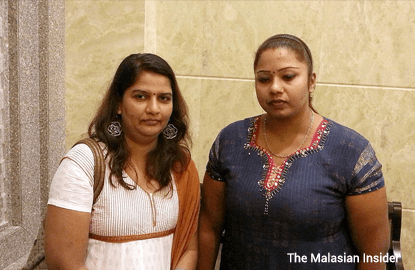
KUALA LUMPUR (Feb 23): The Malaysian Bar has shot down a proposal to set up a tribunal comprising shariah and civil court judges to resolve interfaith disputes, saying it is unacceptable and counter-productive.
Its president, Steven Thiru, said it had no constitutional basis.
"It will further have the effect of elevating the shariah courts to the level of the civil courts, which is contrary to our constitutional scheme," he said in a statement.
Thiru said it would also subject non-Muslims to adjudication by shariah court judges which was plainly unconstitutional.
It would lead to an intrusion into the clearly defined jurisdiction of the civil courts under the Federal Constitution and statute law, he added.
"The sole and absolute preserve of the civil courts to determine constitutional issues, and matrimonial matters under the Law Reform Act must be jealously guarded and never compromised.
"The civil courts must always exercise this important jurisdiction wisely," he said.
Steven said the Shariah Court was created by statute (state enactments and Acts of Parliament) and its jurisdiction was limited by the statute.
The idea of the tribunal was mooted by the Muslim Lawyers Association as it is said to be the most practical platform to settle disputes between Muslim and non-Muslim spouses.
It received the support of the country’s Shariah Court chief judge Tan Sri Ibrahim who acknowledged that Muslims were still bound by civil laws.
Steven also said the unilateral conversion of minor children by a parent who embraced Islam was not decided by the Federal Court in the Deepa case but the issue must be resolved.
"The unilateral conversion of both children to Islam by the ex-husband (Izwan Abdullah) was not a question framed for the determination of the Federal Court in this case. It is nevertheless an issue that must be resolved," he said.
Thiru said the unilateral conversion occurred when the Izwan's (N. Viran) daughter was eight years old and the son was five years old in 2013.
He said the Seremban High Court aptly questioned that “… at such tender age is it reasonable to expect them to be able to consider and make rational decision regarding the choice of converting to another religion other than the one that they are born with.”
Thiru's statement was in response to the Federal Court ruling on Feb 10 where the apex court granted Izwan custody of Mithran (Nabil), while Deepa retained the guardianship of Sharmila (Nurul Nabila).
Izwan converted the children without the consent and knowledge of Deepa whom he married under the civil law in 2003.
The mother went to the civil court to dissolve the marriage and successfully obtained custody of both children, only to see Izwan snatching the boy from Deepa two days later.
However, one of the issues raised for the apex court to decide was whether the civil court or Shariah Court had jurisdiction to decide on custody of children when a spouse had converted to Islam.
The Federal Court will have the opportunity to decide on the conversion issue following a legal challenge mounted by kindergarten teacher M. Indira Gandhi from Ipoh which could be decided this year.
Ex-husband Muhammad Riduan Abdullah, formerly known as K. Patmanathan, had unilaterally converted their three children to Islam and Indira is contesting the conversion certificates issued by the Perak Religious Department
Thiru said the Bar maintained that the Cabinet directive announced in April 2009 through the former de facto Law Minister Datuk Seri Mohamed Nazri Abdul Aziz that the children of an estranged couple should remain in the religion of the parents at the point of their marriage.
He said the Bar agreed with the views expressed by de facto law minister Nancy Shukri that the welfare of children is paramount and that the children should be allowed to choose their religion when they reach the age of majority.